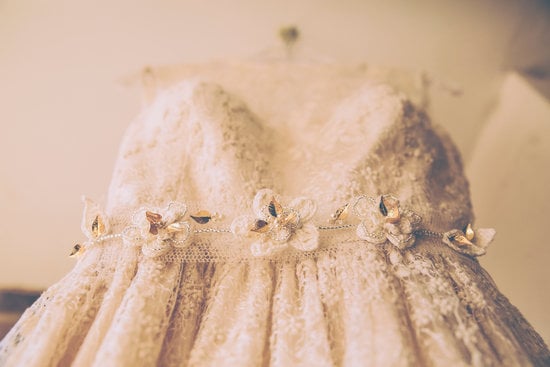Can you elope and still have a wedding? The idea of eloping has evolved over the years, with many couples seeking to combine the intimacy of eloping with the celebration of a traditional wedding. In this article, we will explore the concept of eloping and the traditional idea of a wedding, as well as the possibility of blending the two to create a unique and meaningful experience for you and your partner.
Eloping is often associated with couples running off in secret to get married, away from family and friends. However, eloping can also be a deliberate choice made by couples who are looking for a more intimate and private way to celebrate their love.
On the other hand, a traditional wedding typically involves elaborate planning, large guest lists, and various ceremonies and traditions. Both options have their own set of benefits and drawbacks, which we will delve into further in this article.
As we discuss whether you can elope and still have a wedding, we will explore how couples can combine the spontaneity and romance of eloping with the joyous celebration of a traditional wedding. We will also provide insights on how to plan an elopement, incorporate traditional wedding elements into it, involve loved ones in your special day, and add personal touches to make your celebration truly one-of-a-kind.
So if you’re considering eloping but still want to have a memorable wedding experience, keep reading for some valuable tips and advice.
What Is Eloping
Eloping has traditionally been associated with skipping the big wedding and heading to a remote location to get married in secret. However, the modern concept of eloping has evolved to include a variety of reasons why couples choose this alternative to a traditional wedding. In essence, eloping refers to a private and intimate way of getting married, often without the extravagance and formalities of a traditional wedding ceremony.
There are several reasons why couples may choose to elope. Some may find that it allows them to focus on their commitment to each other without the stress and pressure of planning a large event.
Others may opt for eloping due to time or financial constraints, as it can be more cost-effective and less time-consuming than planning a traditional wedding. Additionally, some couples simply prefer the idea of an intimate ceremony that centers on their love and connection, rather than adhering to societal expectations.
Eloping also provides the opportunity for couples to exchange vows in unique and meaningful settings that hold personal significance. Whether it’s on a mountaintop at sunrise or in a secluded garden at sunset, eloping allows couples to create memorable experiences in locations that hold sentimental value for them personally. Ultimately, eloping can offer couples the chance to prioritize what truly matters to them when it comes to their marriage celebration.
| Reasons for Eloping | Key Consideration |
|---|---|
| Focusing on commitment | Avoiding stress and pressure |
| Time or financial constraints | Celebrating in unique settings |
Pros and Cons of Eloping
Eloping is a growing trend among couples who are looking for a more intimate and private way to exchange their vows. There are several reasons why couples choose to elope, including wanting to avoid the stress and expense of a traditional wedding, desiring a more personal and meaningful ceremony, or simply preferring to keep their nuptials private. However, eloping also has its drawbacks, such as potentially disappointing family and friends who may have wanted to be part of the celebration.
One of the main benefits of eloping is the simplicity and affordability it offers. Without the large guest list, extravagant venue, and elaborate reception, eloping can save couples a significant amount of money while still allowing them to have a beautiful and memorable wedding experience. Additionally, eloping can provide couples with the flexibility to choose any location they desire, whether it’s a romantic destination or a meaningful spot that holds special significance for them.
On the other hand, one of the drawbacks of eloping can be the potential disappointment or hurt feelings of family members and close friends who were not included in the ceremony. For many people, attending weddings is an important tradition that allows them to show their love and support for the couple. Furthermore, some couples may regret not having certain loved ones present on their special day.
Despite these potential downsides, it is possible for couples to elope and still have a wedding celebration afterwards. This option allows them to enjoy the best of both worlds – an intimate ceremony followed by a larger gathering with family and friends to celebrate their marriage. Additionally, this approach gives couples the opportunity to customize their wedding festivities according to their preferences.
| Benefits of Eloping | Drawbacks of Eloping |
|---|---|
| Elopement offers simplicity and affordability | Potential disappointment of family and friends |
| Flexibility in choosing any location for the ceremony | Possible regret over not having certain loved ones present |
Can You Elope and Still Have a Wedding
When it comes to the idea of eloping, many people wonder if it’s possible to still have a wedding even after choosing to elope. The answer is yes, it is possible to combine eloping with a traditional wedding celebration. This can be a great option for couples who want the intimacy and spontaneity of eloping, but also wish to include their loved ones in a more formal celebration.
Here are some ways you can combine eloping with a traditional wedding celebration:
- Hold a small, intimate ceremony at your elopement destination, and then plan a larger reception or party for friends and family when you return.
- Have an intimate ceremony with just close family and friends present, and then plan a separate traditional wedding ceremony and reception later on.
- Incorporate elements of your elopement into your traditional wedding, such as sharing photos or videos from your elopement during the reception.
Keep in mind that combining eloping with a traditional wedding celebration allows you to have the best of both worlds. You can enjoy the romance and excitement of an intimate elopement while still having the opportunity to celebrate with your loved ones in a more formal setting.
Planning an Elopement
Eloping has become an increasingly popular choice for couples looking to tie the knot in a more intimate and private setting. While traditional weddings often involve months of planning, large guest lists, and elaborate ceremonies, eloping offers a simpler and more spontaneous alternative. If you’re considering eloping, it’s important to carefully plan your special day to ensure that it reflects your relationship and personal style.
Consider Your Ideal Location
One of the key benefits of eloping is the flexibility to choose any location as the backdrop for your ceremony. Whether it’s a picturesque beach, a charming countryside, or a bustling cityscape, you have the freedom to select the perfect setting that resonates with you as a couple. Consider locations that hold sentimental value or simply inspire romance.
Find an Officiant
Once you’ve chosen your elopement location, it’s essential to find an officiant who can legally marry you in that area. Depending on the destination and local regulations, you may need to research and secure an officiant well in advance. Some couples opt for a close friend or family member to officiate their elopement for a more personal touch.
Capture Memorable Moments
Just because you’re eloping doesn’t mean you have to forgo documenting your special day. Hire a photographer or videographer to capture the intimate moments of your elopement. These visual keepsakes will allow you to share the joy of your wedding with loved ones who couldn’t be present and provide cherished memories for years to come.
Eloping provides couples with the opportunity to exchange vows in a way that feels authentically meaningful to them without adhering strictly to traditional wedding expectations. By carefully planning your elopement and considering these tips and advice, you can create a beautiful and unique celebration of your love.
Incorporating Traditional Wedding Elements
Eloping doesn’t necessarily mean forgoing all traditional wedding elements. In fact, many couples choose to incorporate some of these elements into their elopement to still have a sense of a traditional wedding. Here are some ways that you can include traditional wedding elements in your elopement:
Exchange Vows and Rings
One of the most important aspects of a traditional wedding is the exchange of vows and rings. Even if you are eloping, you can still have a meaningful ceremony where you and your partner exchange vows and rings. You can choose a beautiful location such as a scenic overlook, a beach, or a park to create a romantic setting for this special moment.
Professional Photography
A key element of any wedding is capturing the memories through photography. Just because you are choosing to elope doesn’t mean you have to miss out on professional photos to cherish. Hire a photographer to document your elopement and capture the special moments. This way, you will have stunning photos to look back on and share with your loved ones.
Celebrate Afterwards
After your private elopement, consider hosting a reception or celebration with close family and friends. This is an opportunity to celebrate your union with loved ones while still maintaining the intimacy of your elopement. You can have a dinner party at a favorite restaurant or host a small gathering at your home to share the joyous occasion with those who matter most.
Incorporating traditional wedding elements into an elopement allows couples to have the best of both worlds – the privacy and intimacy of an elopement along with meaningful traditions that make their union special.
Eloping With Family and Friends
When discussing eloping, many couples may wonder if it is possible to involve their family and friends in the elopement process. The traditional idea of eloping often conjures images of a couple running away in secrecy to get married, without the presence of loved ones. However, nowadays, there are various ways to incorporate family and friends into an elopement while still maintaining the intimate and personal nature of the event.
Here are some options for involving loved ones in an elopement:
- Virtual participation: With the advancement of technology, couples can include their family and friends in their elopement ceremony through virtual platforms. This allows loved ones who cannot be physically present to still be a part of the special day.
- Pre-elopement celebration: Couples can choose to have a small pre-elopement celebration with their closest family and friends before heading off to elope. This can be a simple gathering or dinner where the couple shares their plans with loved ones and seeks their blessings before embarking on their private ceremony.
- Post-elopement reception: After returning from their elopement, couples can host a reception or celebration for family and friends to share in their joy. This allows them to celebrate their union with loved ones in a more traditional setting while still having had a private ceremony.
Involving family and friends in an elopement is entirely possible, and it can add meaningful elements to the experience without compromising its intimate nature. Each option offers couples the chance to blend the personal, private aspects of an elopement with the desire to include those they care about in their special day.
Can you elope and still have a wedding? Yes, by finding creative ways to include loved ones, couples can achieve both an intimate elopement and a meaningful celebration with family and friends.
The Importance of Personalization
In conclusion, the decision to elope or have a traditional wedding is a deeply personal one for couples. While eloping offers intimacy and spontaneity, traditional weddings often involve larger celebrations with family and friends. However, the question remains: can you elope and still have a wedding? The answer is yes. Couples can choose to elope for their ceremony while still incorporating elements of a traditional wedding in their celebrations.
For many couples, the idea of personalization and customization is important in both elopements and traditional weddings. Including personalized vows, special readings, or cultural traditions can add a meaningful touch to an elopement ceremony. For those who choose to have a separate celebration after eloping, they can still incorporate personalized details such as custom décor, unique entertainment, and specialized menus to reflect their personalities and love story.
Ultimately, whether couples decide to elope or have a traditional wedding, the most important thing is that it reflects them as a couple. To achieve this balance, some may opt for an intimate ceremony with just the couple present before hosting a larger reception with family and friends.
This allows for both experiences – the intimacy of an elopement and the joy of celebrating with loved ones at a more formal event – making it possible to combine both aspects into one unforgettable celebration.
Frequently Asked Questions
Is It OK to Have a Wedding After Eloping?
It is absolutely okay to have a wedding after eloping. Many couples choose to do this in order to celebrate their marriage with family and friends after having a private ceremony. It’s a chance to still have the big celebration while also honoring their decision to elope.
Is It OK to Get Married and Have a Wedding Later?
Getting married and having a wedding later is becoming increasingly common. Some couples opt for a small, intimate ceremony initially and then plan a larger wedding celebration at a later date. This can be a great way to accommodate different preferences and circumstances.
Can You Have a Wedding After Already Being Married?
Yes, it is definitely possible to have a wedding after already being married. Whether it’s for legal or personal reasons, some couples may choose to have a formal wedding ceremony later on. This allows them to publicly declare their love and commitment in front of loved ones even if they are already legally married.

I have been involved in marriages for over 20 years helping couples and singles understand more about them.





